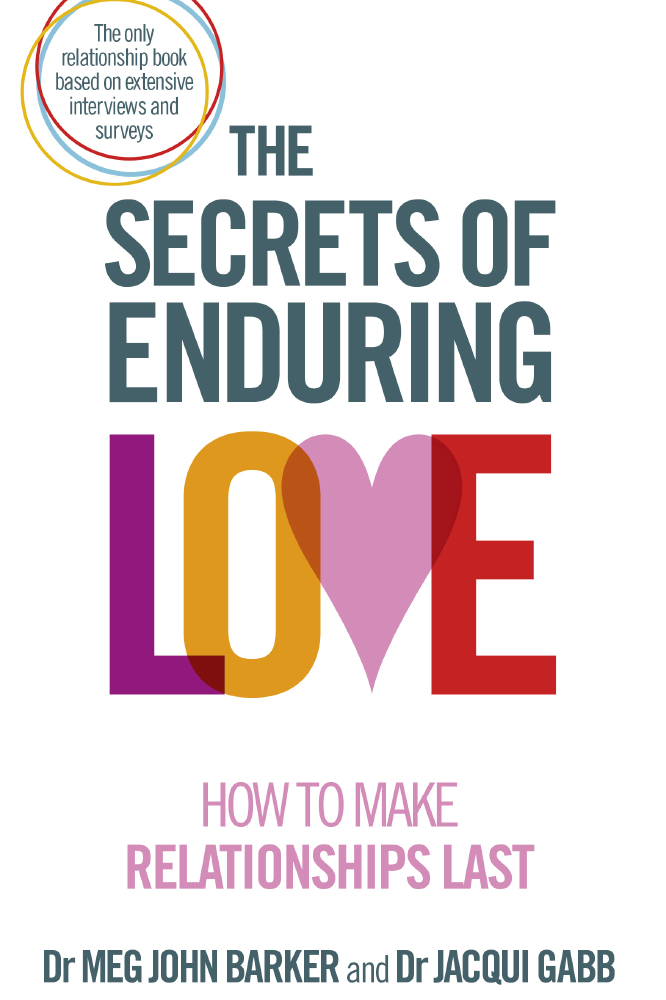By Meg-John Barker

The Secrets of Enduring Love
Based on The Secrets of Enduring Love
1. Figure out your third (and fourth and fifth...) legs
The Enduring Love research found that relationships that work well over time generally have one or more 'third elements' that stabilise them - like the third leg on a stool. This could be kids, pets, religious beliefs, interests, leisure pursuits, or other people like friends and family. Think about what your relationship third elements are, and what you'd like them to be.
2. Have separate and together things
We also found that it's good for partners to have some things in their lives that they share, and some that they keep separate. Map out the things you enjoy doing together and the things that are more separate interests. Think about the time you spend together and apart. Both are important.
3. Different people for different things
If there are things that one of you likes doing and the other doesn't, think about who in your life you might enjoy those things with. Don't try to force each other to be into things they're not.
4. Let go of 'The One'
The idea of finding the one perfect partner who'll be everything to us is actually pretty damaging. Accepting that we get different needs met in different relationships in our lives can take the pressure off.
5. Map all your relationships
Together you could draw out all the important people in your lives including the ones that you share and the ones who are more separate. This could be friends, family, partners, colleagues, neighbours, and anybody else in your lives - including animals because they're often important relationships too.
6. What you get and what you give
Think about what you get - and give - in each of these relationships. For example, fun, support, nurturing, exploring mutual interests, peace and quiet, comfort, encouragement to do new things, challenge, excitement...
7. Appreciation
We found that great relationships often involve plenty of gratitude. Try expressing that for each other, and for the other people in your lives: letting them know what they mean to you and celebrating your time together.
8. Finding other people
If there are important areas which you'd like to share with somebody but don't have in common with your partner, think about where you might find people to share it with. Groups and online communities for people with the same interests can be a good place to start.
9. Communicate, communicate, communicate
Because of the pressure to get all our needs met from a partner it can be hard to recognise that we can't get - or give - everything in one relationship. Talking openly about this is important. The motto of polyamorous people - who have more than one partner - is 'communicate, communicate, communicate'. That's just as important for all kinds of relationships because we all need more than one close person in our lives.
10. ...and more appreciation
And then we can express our appreciation both for the things we get from our partner, and for the space they give us to enjoy the other relationships in our lives.
The Secrets of Enduring love: How to make relationships last by Dr Meg John Barker and Professor Jacqui Gabb (Vermilion, trade paperback 10.99)
